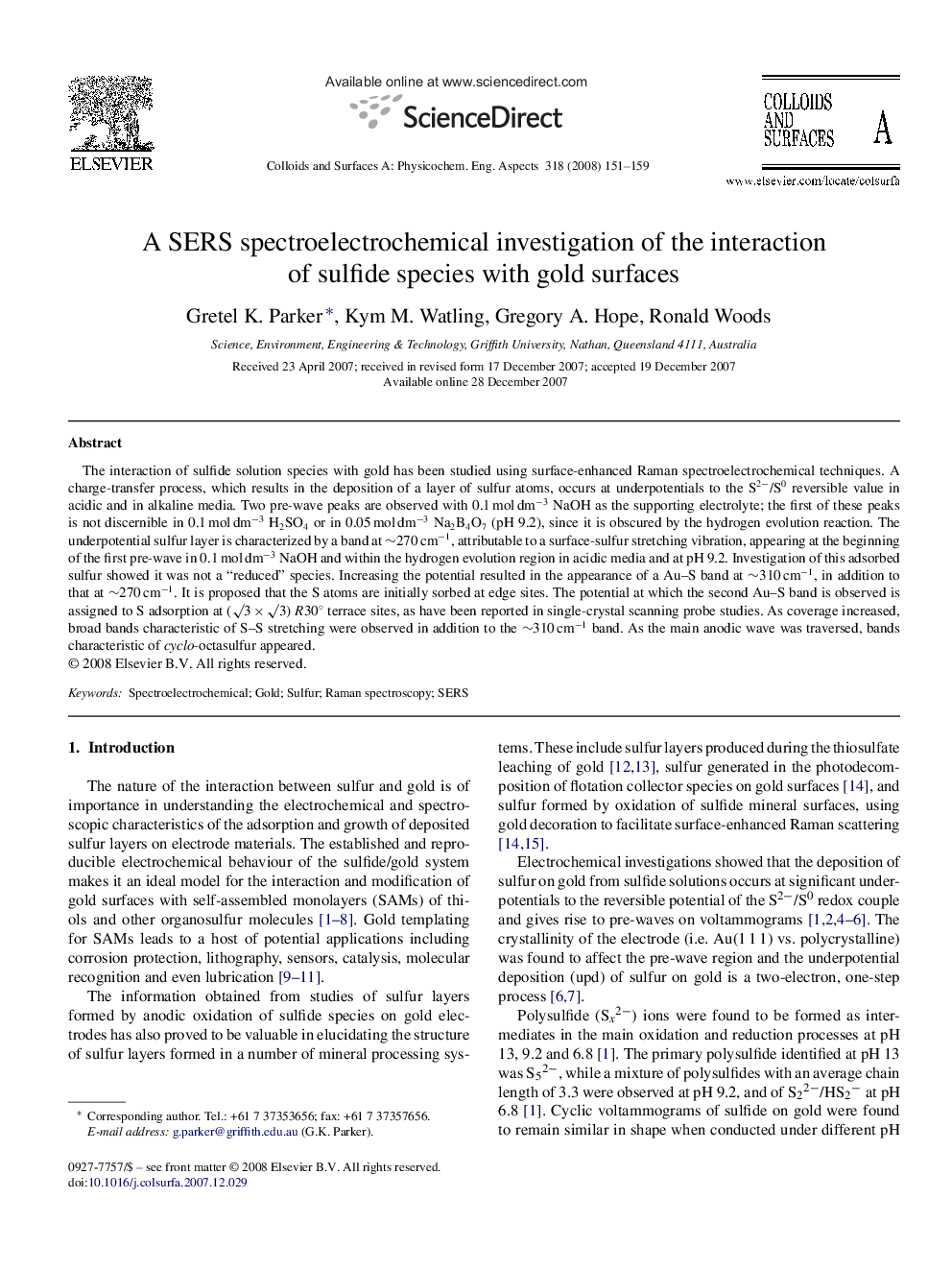| کد مقاله | کد نشریه | سال انتشار | مقاله انگلیسی | نسخه تمام متن |
|---|---|---|---|---|
| 597078 | 1454054 | 2008 | 9 صفحه PDF | دانلود رایگان |

The interaction of sulfide solution species with gold has been studied using surface-enhanced Raman spectroelectrochemical techniques. A charge-transfer process, which results in the deposition of a layer of sulfur atoms, occurs at underpotentials to the S2−/S0 reversible value in acidic and in alkaline media. Two pre-wave peaks are observed with 0.1 mol dm−3 NaOH as the supporting electrolyte; the first of these peaks is not discernible in 0.1 mol dm−3 H2SO4 or in 0.05 mol dm−3 Na2B4O7 (pH 9.2), since it is obscured by the hydrogen evolution reaction. The underpotential sulfur layer is characterized by a band at ∼270 cm−1, attributable to a surface-sulfur stretching vibration, appearing at the beginning of the first pre-wave in 0.1 mol dm−3 NaOH and within the hydrogen evolution region in acidic media and at pH 9.2. Investigation of this adsorbed sulfur showed it was not a “reduced” species. Increasing the potential resulted in the appearance of a Au–S band at ∼310 cm−1, in addition to that at ∼270 cm−1. It is proposed that the S atoms are initially sorbed at edge sites. The potential at which the second Au–S band is observed is assigned to S adsorption at (√3 × √3) R30° terrace sites, as have been reported in single-crystal scanning probe studies. As coverage increased, broad bands characteristic of S–S stretching were observed in addition to the ∼310 cm−1 band. As the main anodic wave was traversed, bands characteristic of cyclo-octasulfur appeared.
Journal: Colloids and Surfaces A: Physicochemical and Engineering Aspects - Volume 318, Issues 1–3, 1 April 2008, Pages 151–159